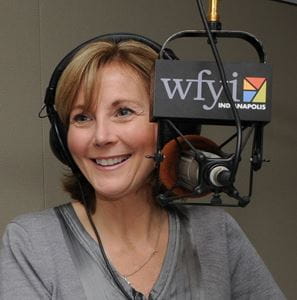The shift-work blues. Air traffic controllers aren’t the only ones working odd hours with unpredictable schedules. Nearly nine million Americans do “shift work,” either on night jobs or on jobs with rotating shifts, that disrupt the body’s natural clock. Sound Medicine reporter Colleen Iudice explores how whacked-out circadian rhythms can affect human health.
Sleep disorders in the blind. Circadian rhythms are more complicated when a person is blind and can’t distinguish the cycles of darkness and light. In fact, about one-half of totally blind people suffer a sleep disorder that deprives them of adequate, good-quality sleep. Psychiatrist Al Lewy, M.D., Ph.D., will discuss how his research addresses the problem. Dr. Lewy directs the Mood Disorders Research Laboratory at Oregon Health Sciences University in Portland.
Direct-pay primary care. The medical field continues to experiment with ways to delivery primary care that’s both economical and effective. One trend is direct-pay primary care, cash for medical services, which, at the high end, is called “concierge medicine.” Sound Medicine’s healthcare policy expert Aaron Carroll, M.D., will explain how it works. Dr. Carroll directs the Center for Health Policy and Professionalism Research at the IU School of Medicine.
Cavities are contagious. Consider this: when you take a lick of your kid’s ice cream cone, you leave behind bacteria that can actually spread cavities. Dental researcher Domenick Zero, D.D.S., will discuss the types of bacteria that naturally live in our mouths. Dr. Zero is professor and chair of preventive dentistry and associate dean for research at the Indiana University School of Dentistry.
Jane Austen, Health Writer? Physician and Jane Austin fan Cheryl Kinney, M.D., will reveal ways the Regency Period writer conveyed above-average understanding of health and illness in her novels.
Grace Notes. From his Grace Notes series, IU School of Medicine oncologist Larry Cripe, M.D., will read his essay, “A Good Place to Die.” Dr. Cripe is the medical director for palliative care at IU Hospital in Indianapolis.
Sound Medicine is an award-winning radio program co-produced by the Indiana University School of Medicine and WFYI Public Radio (90.1FM). Sound Medicine is underwritten by Indiana University Health, Indiana University Health Physicians, and Indiana University-Purdue University Indianapolis. Reports on Primary Health Care topics are sponsored by Wishard Health Services.
____________________
Listen to Sound Medicine on the following Indiana public radio stations:
WBSB (Anderson), WFIU (Bloomington, Columbus, Kokomo, Terre Haute), WNDY (Crawfordsville), WVPE (Elkhart/South Bend), WNIN (Evansville), WBOI (Fort Wayne), WFCI (Franklin), WBSH (Hagerstown/New Castle), WFYI (Indianapolis), WBSW (Marion), WBST (Muncie), WBSJ (Portland), WLPR, (Lake County), and WBAA, (W. Lafayette).
The show also airs on these out-of state public radio stations:
KOTZ and KINU (Kotzebue, AK), KRCC (Colorado Springs, CO), KEDM (Monroe, LA), WCNY (Syracuse, NY), WYSO (Yellow Springs, OH), WYSU (Youngstown, OH), KWGS (Tulsa, OK), KPOV (Bend, OR), KMHA (Four Bears, ND), and KLMS (Carlsbad, NM).




